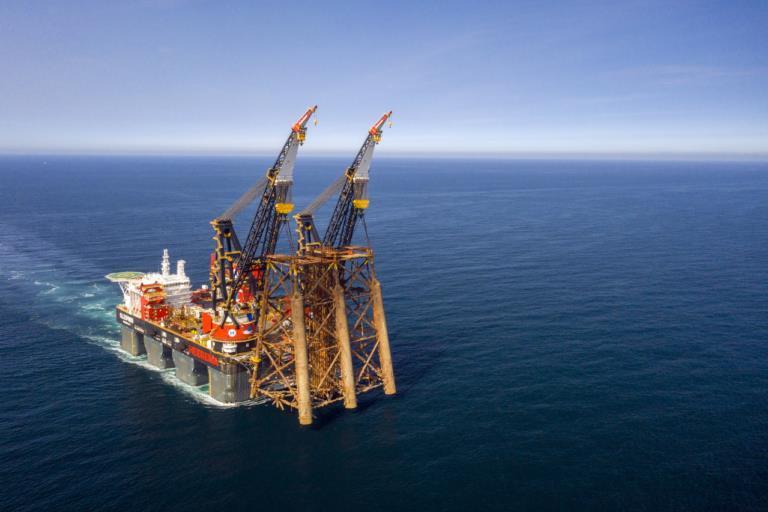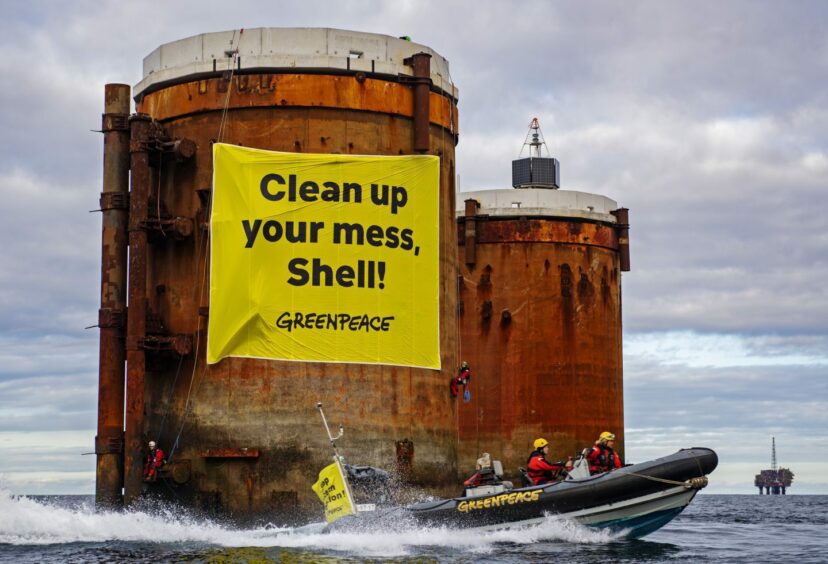
Shell (LON: SHEL) has offered up a multi-million-pound tender to remove the upper jacket of its Brent Alpha platform and “debris” from the nearby Delta asset.
The tender, valued at less than £25 million, outlines work to remove “the upper portion of the Brent Alpha steel jacket, and removing to shore for recycling.”
However, the London-listed supermajor was still unable to provide additional details on the removal of the gravity-based structures on Bravo, Charlie and Delta.
The legs at these sites have been met with contention as climate activists campaign for Shell to remove the massive structures from UK waters.
The supermajor is still awaiting approval for its plans to leave the legs of the Bravo, Charlie and Delta platforms in the North Sea, however, the derogation for Alpha was approved in 2020, Shell explained.
Brent ‘attic oil’ and ‘debris’
In addition to the removal of Brent Alpha’s jacket, the operator is also offering work to remove “the oil –known as ‘attic oil’ – trapped at the top of some of the subsea storage cells,” Shell wrote on the North Sea Transition Authority’s Pathfinder service.
The firm that wins the tender process, which is set to conclude in late October, will recover “oil and gas debris from the seabed across the Brent Field”.
In November, Shell removed the Brent Charlie topside after it ceased production in 2021 following four decades of operation.
It became the fourth and final platform in the field to be removed, following Brent Delta in 2017, Brent Bravo in 2019, and Brent Alpha in 2020.
Brent legs debate
With the removal of the final platform on the Brent field attentions turned to the legs left across the site.
Shell’s proposal to leave the platform legs in place have proven highly controversial, with environmentalists concerned about the impact of the “hazardous waste”.
Greenpeace UK staged numerous protests at the Brent field in 2019 and 2020, accusing Shell of seeking to “abandon” 11,000 tonnes of oil on the seabed.
Shell has highlighted the risks of removing the Eiffel Tower-sized structures, including safety and other factors such as environmental and societal impact.
The firm has said that these risks outweigh the benefits even when cost is not considered.
However, the Brent decommissioning plans have also met opposition from other countries within OSPAR – a pan-European convention requiring removal of oil and gas structures from the seabed.
Shell is still awaiting approval for its Brent Field decommissioning plan after submitting its proposals to UK regulator OPRED.
A spokesperson for the supermajor said late last year that the firm expected approval for its Brent oilfield by the end of 2024, however, it is yet to receive the green light for the project.
Over the field’s lifetime, Shell estimates that production contributed more than £20bn in tax revenues to the UK government.
However, the firm disclosed nearly $750m (£584m) of tax rebates for decommissioning activities related to Brent last year.
Recommended for you


 © Supplied by Greenpeace
© Supplied by Greenpeace